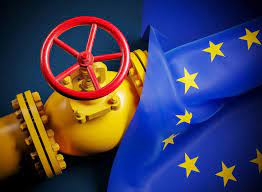
By Graham Watson, The Guardian.
Despite Brexit, I still believe in the European project and as an Italian citizen I can play my part
Iwas a member of the European parliament for South West England from 1994 to 2014, including a seven-year stint as leader of an alliance of Liberal and Democrat parties. A decade later, I am standing once again, this time as an Italian citizen in the constituency of North East Italy.
I had not expected to be called out of a semi-retirement of teaching postgraduate students at the University of Toronto about the EU. In politics, however, when the call comes, one cannot say no. The offer to be the top candidate in this region for the new United States of Europe alliance is one I have taken up with gusto.
I’ve been married to an Italian for more than 30 years. I live in Florence, and have two children who are dual nationals. Until Brexit, my UK passport gave me the right to work and reside anywhere in the EU. Since 2016, the number of UK citizens applying for Italian citizenship has risen sharply. I am among those applicants who were fortunate to be granted it.
As a Brexit refugee, I am dismayed to discover the same forces at work in Italy as I saw in the UK: rightwing political activists determined to break up the EU. They exploit social media algorithms to spread anti-EU propaganda. It is, in one sense, unsurprising: the EU’s single market is the largest free market, capable of facing down the monopolistic practices of the Amazons and Googles of this world, while the euro is a global currency that rivals (and might one day overtake) the dollar as a global reserve currency.
The United States of Europe is a group of six small parties, led by the former Italian prime minister Matteo Renzi and the former European commissioner Emma Bonino. It seeks to persuade Italians that a confederation of European states is no longer capable of satisfying citizens’ demands. A federal Europe – more along the lines of the USA – has become a necessity.
The EU’s budget is less than 2% of its GDP, whereas the US’s budget is more than 20% of its GDP. The US’s Inflation Reduction Act is a massive stimulus for its economy: Europe’s recovery and resilience fund must be endowed with the same capacity.
Italy produced Altiero Spinelli, one of the founding fathers of the EU, and the likely future Commission president Mario Draghi. Now it has created the first serious federalist political alliance. To show that it practises what it preaches about EU citizenship, Italy’s former EU affairs minister Sandro Gozi is seeking re-election to the European parliament in France with Emmanuel Macron, while I have been selected to stand in North East Italy.
“Having created Italy,” wrote the 19th-century Italian philosopher-politician Massimo d’Azeglio, “we must create Italians.” Our message is: “Having created Europeans, we must create Europe.” Three generations have been born since the Treaty of Rome was signed in 1957. They have the right to expect a Europe that can exercise effectively the sovereignty its citizens have pooled.
So what would a federal Europe look like? We are campaigning for a common defence policy to replace 27 national armies, navies and air forces with incompatible munitions; for a European energy market with laws and infrastructure to allow the free flow of gas and electricity between member states; and for a European migration policy similar to Canada’s, recognising the need for legal routes for immigration in a continent of plummeting birthrates, and for proper integration policies for new arrivals.
The rightwing parties in Italy are running under the slogan “More Italy, less Europe!”. But Italy’s business people know that less Europe means more China, more Russia. Less Europe means less investment, fewer jobs and less opportunity. The UK has discovered this, belatedly and at great cost. In contrast we are campaigning under the slogan “More Europe”.
Italy’s election law stipulates that to elect MEPs, a party must poll at least 4% nationwide. The latest polls show that we have 4.8%. But the voter can also specify which of the names on the party’s list they prefer. As I have a name not widely known in Italy, I’ve resorted to a slogan that many will recognise: “Looking for clues about who to vote for? Elementary! Vote Watson!”
As Europe showed with its response to Covid, if 27 countries pool their sovereignty and their human and financial resources, they can defeat challenges such as the pandemic in record time.
Twenty years ago, together with the then president of the EU, Romano Prodi, I created a new powerful political group in the European parliament: the Alliance of Liberals and Democrats for Europe. Looking back, I see that the idea was ahead of its time. That time has now come. I hope to help Europeans seize the moment.





